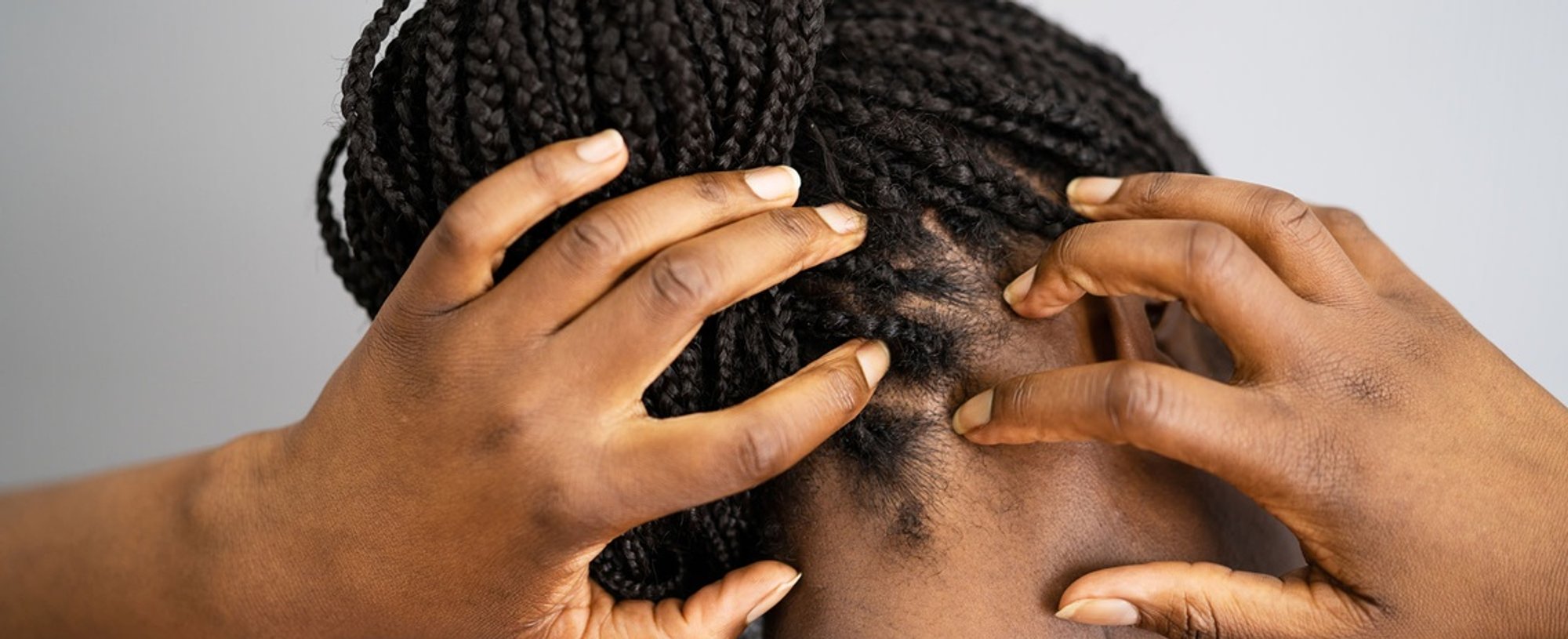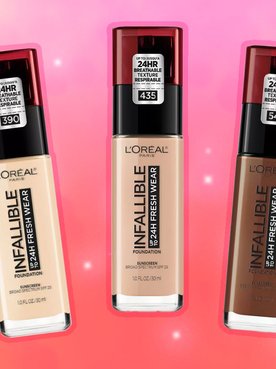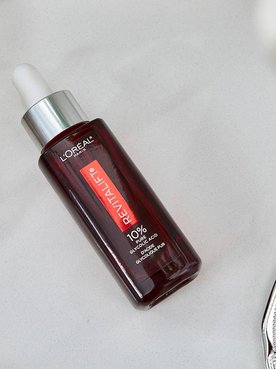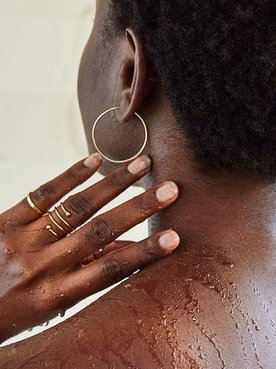If you’ve recently noticed that you’ve been dealing with an itchy, dry, and flaky scalp your first thought might be that dandruff has reared its ugly head. Before you begin treating your scalp, consider that there’s another possibility for your hair woes: scalp psoriasis.
Don’t worry if you’re blinking incessantly at the idea, many people don’t know much about this common skin condition. Unless you’re watching late morning game shows regularly, it’s not a term you hear every day. That’s why we’re filling you in on what you need to know — from scalp psoriasis causes and symptoms to explaining what scalp psoriasis looks like and our tips to help manage it. Keep reading for the lowdown.
What Is Scalp Psoriasis?
According to the , scalp psoriasis, also known as plaque psoriasis, is a chronic inflammatory disorder. Scalp psoriasis symptoms consist of red, thickened plaques with silver-white scale, either contained within the hairline, or extending onto the forehead, ears, and the neck. They also share that symptoms may include intense itching and the presence of dandruff.
What Causes Scalp Psoriasis?
If you know much about psoriasis in general — it isn’t always of the scalp variety — then you may already know the answer to this question. While scalp psoriasis is only a variation of psoriasis, the known causes of scalp psoriasis are pretty much the same, according to the American Academy of Dermatology (AAD).
Psoriasis develops when a person’s immune system has faulty signals that tell skin cells to grow too quickly. As a result, new skin cells form in days rather than weeks, and the body fails to shed those excess cells. In turn, those skin cells pile up on the surface of the skin, causing patches of psoriasis to appear.
What Does Scalp Psoriasis Look Like?
If you’ve been asking yourself if you may have scalp psoriasis, it’s time to listen up. Per the AAD, if you notice temporary hair loss, a burning sensation or soreness, or a silvery sheen on your scalp, it’s a tell-tale sign that it may be time to visit your dermatologist to diagnose whether you have scalp psoriasis.
Excessive itching to the point of bleeding on the scalp along with reddish patches, fine scales, or crusted lesions are also signs that plaque psoriasis may be present. The AAD also states that signs and symptoms can come and go. While some people may only experience one mild scalp psoriasis flare-up, others may experience serious flare-ups regularly.
It’s best to visit your doctor for a proper diagnosis. Even if you know what signs of scalp psoriasis to look out for, it’s always best to consult with your doctor to diagnose because it’s commonly mistaken for dandruff.
Scalp Psoriasis vs. Dandruff: What’s the Difference?
Speaking of dandruff, people often confuse scalp psoriasis for it, oftentimes assuming they’re actually one and the same. However, there are key differences between dandruff and scalp psoriasis.
For starters, per the Mayo Clinic, dandruff is caused by a variety of factors, including sensitivity to hair care products, not shampooing enough, shampooing too often, and dry skin. Dandruff can also occur due to irritated, oily skin, and other skin conditions like eczema and psoriasis. That’s right, scalp psoriasis can lead to dandruff, but they’re still two separate skin conditions.
Scalp psoriasis is the direct result of a compromised immune system, whereas dandruff can be caused by mishaps in your hair care routine and other skin conditions. Beyond the differences in their causes, dandruff is described as the flaking skin of the scalp. It typically presents as small white flakes. With plaque psoriasis, aside from the pesky flaking of the scalp and itching, this skin condition is accompanied by thick crusted plaques that sport a silver-white appearance and severe redness.
Can Scalp Psoriasis Cause Hair Loss?
No one likes the idea of losing hair, but, as we touched on a bit earlier, scalp psoriasis and hair loss can occur at the same time, even if scalp psoriasis doesn’t necessarily cause hair loss. According to the National Psoriasis Foundation, this hair loss is the result of damage to elements that hair is made of, including the hair shaft or hair follicles — not a result of psoriasis itself. The damage can occur from rubbing, scratching, or excessive combing and from chemicals or ingredients in treatments and products.
How to Manage Scalp Psoriasis
If you’ve been diagnosed with scalp psoriasis, you’re likely wondering, so how do you treat scalp psoriasis? There are several different therapies that can be used to treat scalp psoriasis — including topical steroids, light therapy and laser light treatments — according to the NCBI. Which treatment therapy you choose will depend on the severity of your scalp psoriasis, your preference of treatment form, and its efficacy in managing your symptoms.
According to the AAD, some tips for managing scalp psoriasis include not scratching, using shampoo that won’t make matters worse, and trying a scale softener. No matter how mild or severe, though, you shouldn’t try to address scalp psoriasis on your own. If you’ve been diagnosed, your doctor can discuss treatment options with you and help you find a plan that will address your specific needs.
Next: 5 Ways To Treat An Itchy Scalp
Edited by: Shalwah Evans, Photo Credit: iStock





